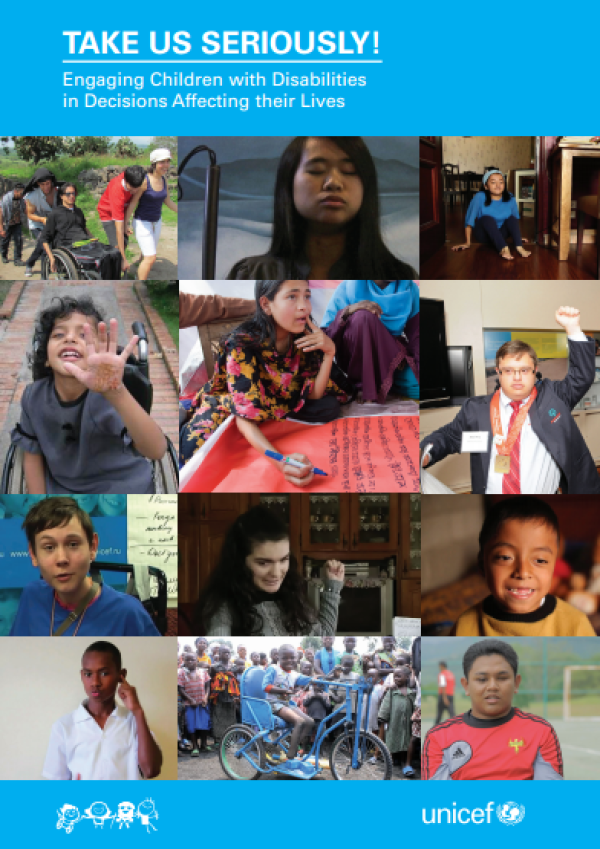- Войдите или зарегистрируйтесь, чтобы оставлять комментарии
- 113 просмотров
The Convention on the Rights of the Child (CRC) recognises that children are not merely passive recipients, entitled to adult protective care. Rather, they themselves have rights and are entitled to be involved in decisions that affect them in accordance with their evolving capacities.
This means they can and should take on responsibility for decisions as their competence evolves. Fundamental to the CRC is respect for children as active participants in their own lives.
Although many countries are creating opportunities for children’s participation, most children with disabilities are not yet given the right to be heard and taken seriously. Children with disabilities are rarely included in such dynamic initiatives as youth forums, children’s parliaments, peer education or media projects. Nor are they involved in local and national campaigns to make rights a reality, or consulted in research concerning children’s views.
The voices of children with disabilities are largely silent in critical decisions affecting their lives – decisions abouttheir health, education, or where they live. Mostly due to prejudice and negative attitudes, around the world adults have low expectations for children with disabilities, doubting their capacity to develop or express a point of view. Consequently, there is widespread failure to invest in their engagement, combined with lack of knowledge, understanding and training to support their participation. The clear result, with few exceptions, is the invisibility and social exclusion of children with disabilities throughout the world.
The Convention on the Rights of Persons with Disabilities (CRPD) recognises this failure, and introduces explicit demands that governments do more. It re-affirms that the right to be heard applies equally to children with disabilities. But the Convention also demands that governments provide the necessary disability and age appropriate assistance to make it happen.2 Furthermore, they must actively consult and involve children with disabilities, through their representative organisations, when developing and implementing policies and programmes to make their rights a reality.3
UNICEF’s work on disability is based on a human rights approach, with a focus on equity. It has been developed within the framework of inclusive development, and actively promotes the social model of disability. A central tenet is that legislation, policies and programmes must be informed and shaped by the children they will affect. Participation is a foundational principle of a rights-based approach. These guidelines are meant to strengthen the capacity of UNICEF and partners in creating opportunities for children with disabilities to exercise their right to be heard and taken seriously.
It is important to:
• clearly identify obstacles impeding the participation of children with disabilities;
• examine why participation is important for children with disabilities;
• provide practical guidance on how and where to reach out and engage children with disabilities more effectively and systematically;
• prioritize ways to measure the effectiveness of participatory initiatives with children with disabilities.






